The Center for Research and Security Studies (CRSS), as part of its efforts to improve people to people contact and promote positive and constructive relations between Pakistan and Afghanistan, organized the 3rd Pak-Afghan Youth Summit, in collaboration with OESP, under its Track II project “Beyond Boundaries”, at Serena Hotel, Islamabad, on Thursday, February 25, 2021. More than 30 youth participants from Pakistan and Afghanistan hailing from diverse sectors attended the summit.
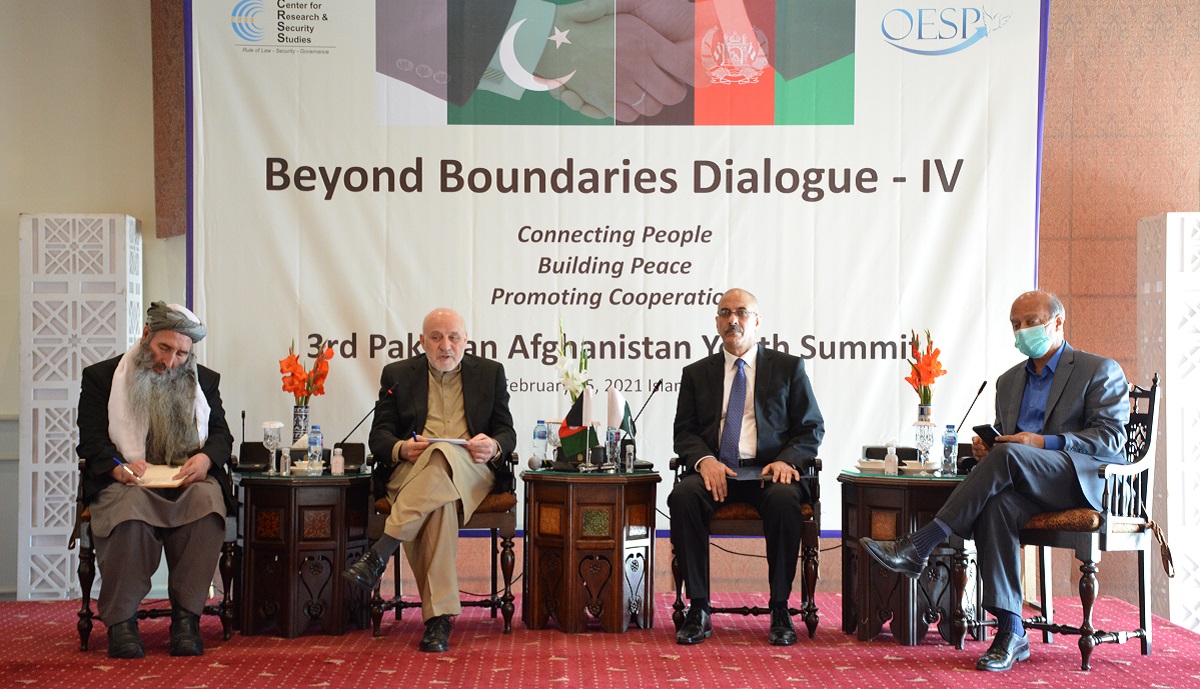 Mr. Umer Daudzai, President’s Special Envoy to Pakistan and H.E. Ambassador Najibullah Alikhil chaired the inaugural session. The rest of the summit was divided into two sessions including: 1) Building on commonalities for resolving the problem of climate change chaired by Mr. Tauqeer Shah, a Climate Change expert and CEO LEAD Pakistan; 2) Role of young leaders in tackling the issue of gender inequality chaired by Ms. Shandana Gulzar Khan, Member National Assembly Pakistan.
Mr. Umer Daudzai, President’s Special Envoy to Pakistan and H.E. Ambassador Najibullah Alikhil chaired the inaugural session. The rest of the summit was divided into two sessions including: 1) Building on commonalities for resolving the problem of climate change chaired by Mr. Tauqeer Shah, a Climate Change expert and CEO LEAD Pakistan; 2) Role of young leaders in tackling the issue of gender inequality chaired by Ms. Shandana Gulzar Khan, Member National Assembly Pakistan.
Imtiaz Gul, Executive Director CRSS, welcomed the participants and introduced “Beyond Boundaries” initiative to the participants. He urged youth to process all information they receive critically and to give their input on the resolution of global issues of gender inequality and climate change for Pakistan and Afghanistan.
In the inaugural session, Umar Daudzai, speaking to the participants of the 3rd Pak-Afghan Youth Summit 2021, encouragingly stated that Kabul and Islamabad have made exceedingly significant progress in bilateral relations over the past few months.
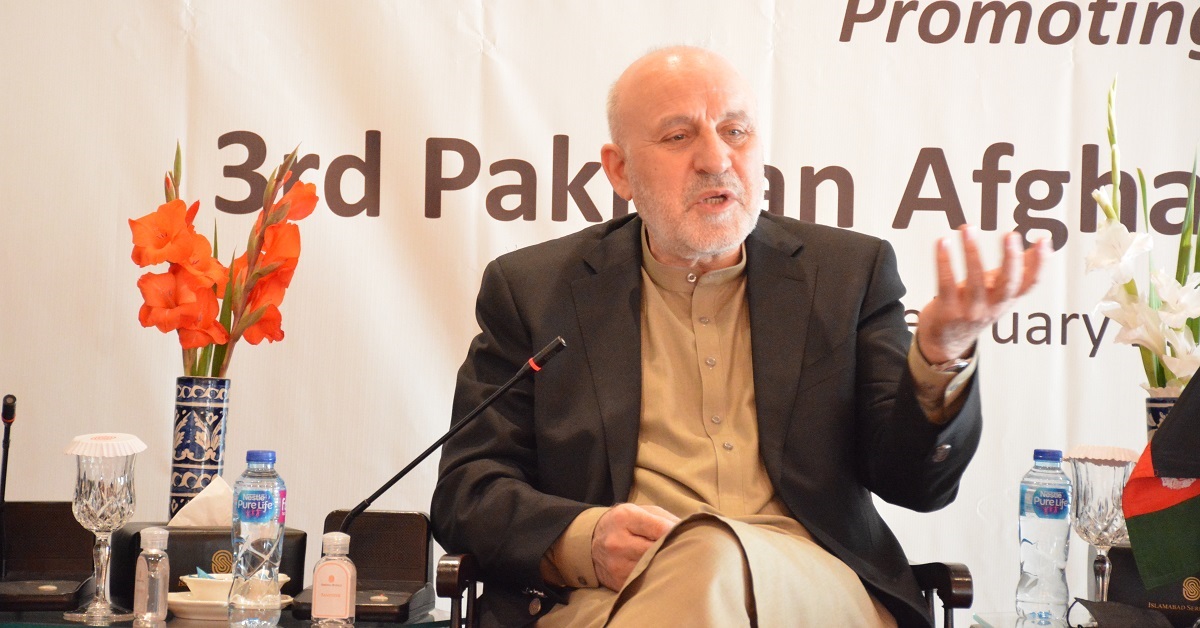
He further added that Pakistan and Afghanistan have made more progress, in last eight months than the last 20 years. It is the first time, both countries have appointed Special Envoys for each other. This gives us a direct and speedy channel for any issue of mutual concern. Pakistan and Afghanistan have no option but to trust each other. We cannot be the prisoners of past and there is no point why we can’t trust each other for carving out a better future. We have passed the phase of mistrust, now we are looking towards the future and youth is an integral part of the times ahead, almost 50,000 students have graduated from Pakistan which is the highest number of graduates among all the neighboring countries. He also highlighted that Afghanistan is working for creating better conditions to welcome its people back until things get better, however, refugees cannot be forced or harassed to comeback. Moreover, he attributed peace as the core issue that can’t be dealt separately.
Daudzai also appreciated Pakistan’s positive and constructive role in facilitating Afghan peace process. Though, he was looking more forward to a comprehensive bilateral relationship between the two sides. Work on which is underway, and many high-level meetings are taking place.
Afghan Ambassador, Najibullah Alikhil, while speaking to the Pak-Afghan Youth on the occasion, appreciated CRSS role in enhancing people to people contact between the two nations. He added that despite being the new Ambassador here [in Islamabad] since November 2020, he has been invited 3, 4 times by CRSS in diverse events falling under people to people contacts. The frequency of these cross-border engagements shows that things have changed, and people are willing to work together in the domains of mutual interests.
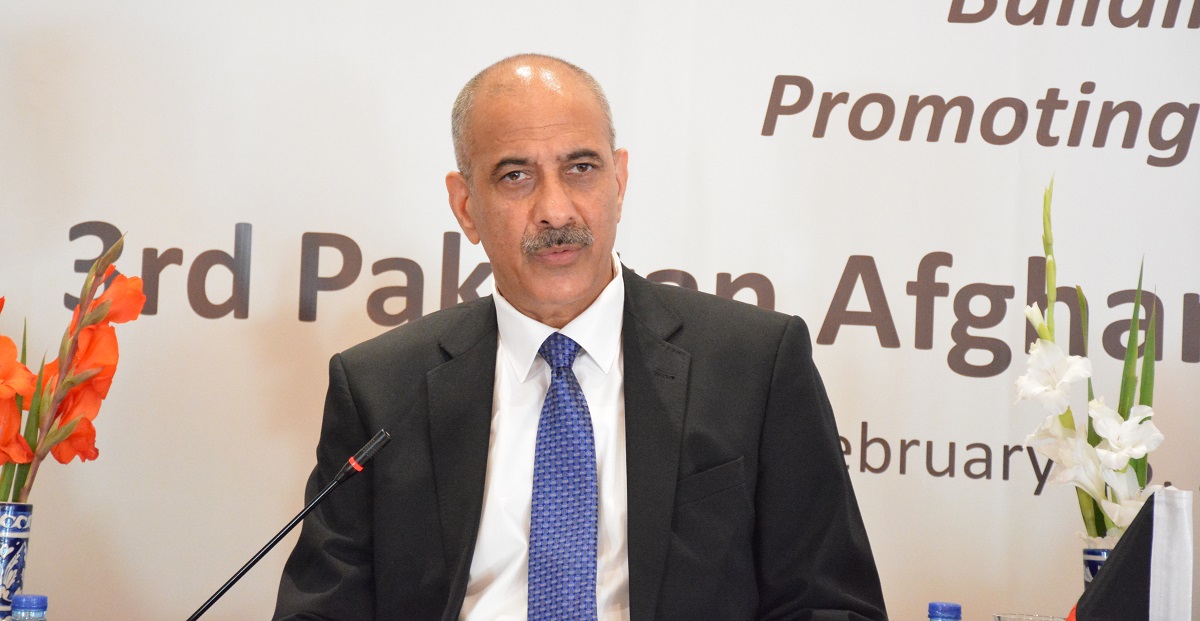
Ambassador further stated that Afghanistan is the most vulnerable to climate change, and is largely effected due to this grave issue. Over the years, Afghanistan has lost thousands of acres of forests due to climate change. Irrigation system in Afghanistan and people moving from one place to another has further enhanced the phenomenon of climate change. Unfortunately, due to the other ongoing conflicts like violence and war Afghanistan has neglected this core issue.
While commending Pakistan’s efforts regarding climate mitigation, he stated that billion trees project speaks for itself. He also showed Afghanistan’s readiness to collaborate with Pakistan on climate issue, and stated that there is a common ground and a huge opportunity for Pakistan and Afghanistan to collaborate in enhancing and promoting discussions, conducting programs on climate change to address challenges in regard to this regional and global issue. He also highlighted the great potential of Afghanistan in producing clean energy.
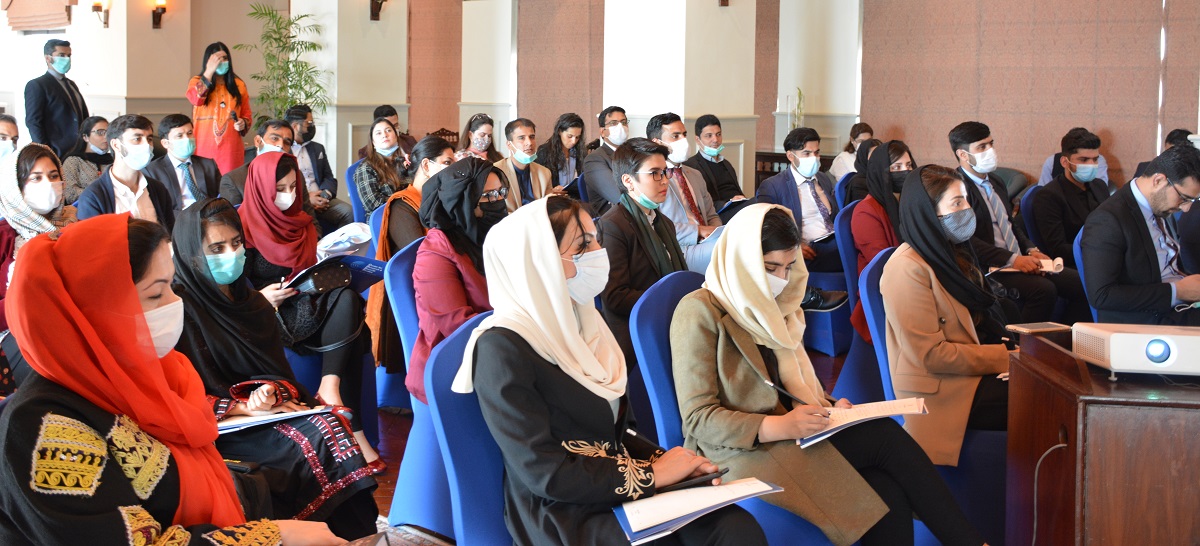
Additionally, on gender issues, he remarked that Kabul has made considerable progress on women rights, reflected in 30-35% of representation in the parliament. Besides that, many ministers are women, and Afghanistan has sent female Ambassadors to several countries. Moreover, Afghanistan is working to take help from the World Bank for providing Afghan identity cards or new PR cards to help female Afghan refugees in their safe return to their homes. This gives Afghanistan hope and is also a challenge to sustain the gains made so far.
Ali Tauqeer Sheikh, a climate change expert, speaking on the themes of climate change enunciated that in 2047, Pakistan will be 100 years old, and poverty numbers by then will be more than the current population of Pakistan. This rings an alarming bell as poor are the most vulnerable to climate change. He further cautioned that by 2050, temperature in Afghanistan and Pakistan will rise by almost 05 degrees. Climate Issues can cause floods, droughts, glacial melting, decreasing levels of ground water, marginalization of women, increased disputes on water etc.
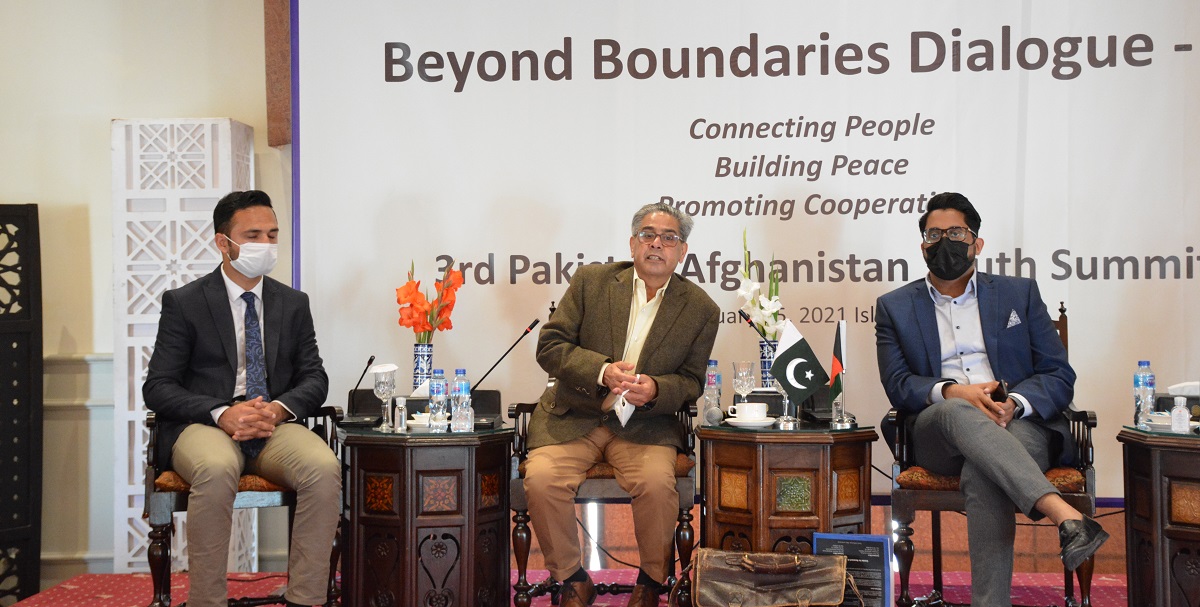
In this context, Pakistan and Afghanistan have to do the homework well in time to mitigate such climatic impacts, as we are running short of time. Unfortunately, Afghanistan is an upper riparian country and cannot retain its water. Pakistan can help build dams in Afghanistan and have a water sharing formula. In this way Afghanistan will be able to retain water and Pakistan will get water off season, a win-win situation for both the countries. This is the only way to tackle this grave issue, as climate issue is not a national issue but a regional and global one, so efforts have to be collective.
Shandana Gulzar Khan, Member National Assembly of Pakistan, while speaking on gender equality stated that first of all let it be clear that men are not the villains. They are equally trapped as women in our society. Both the genders have to go hand in hand and have to respect each other, as respect is the basis of all human relationships. Then next step is to treat each other equally. Equality is the first step, justice is the last. We have to start from treating each other equal and work for justice.
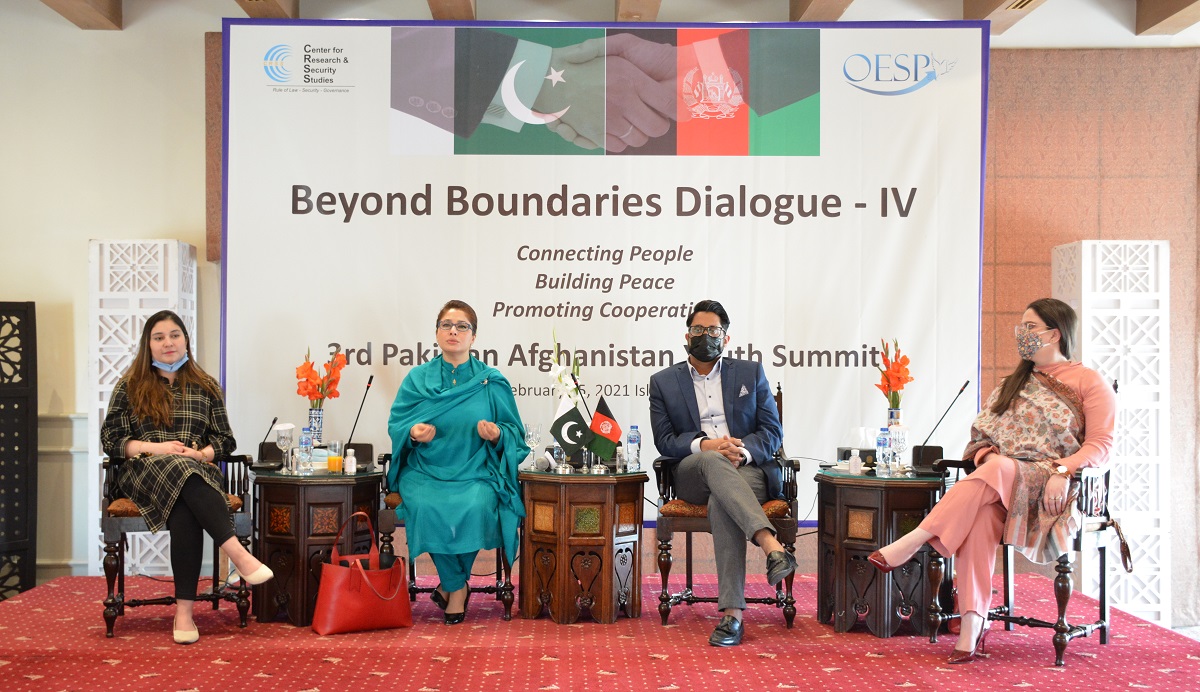
She also said that the world just needs few good people to bring a big change. To bring change we need to understand the issue at hand first. Regarding gender equality, she was of the view that most of the gender issues are taken from culture, and somehow to legitimize, we put these in the basket of religion. This is where the problem starts; no one questions the religion. Whereas, in actual these issues have nothing to do with the religion. Thus, it is the culture that is really the basis of gender related issues.
On gender related Sustainable Development Goals (SDG) and its progress, she mentioned that we formulate things in haste which are meant to fail eventually. MDGs were made without monitoring and evaluation mechanism and thus no progress has been observed at all within that domain. However, under SDGs there is a proper monitoring and evaluation mechanism in place and progress is gauged on a regular basis. She said considerable progress has been made, though there is still a long way to go.
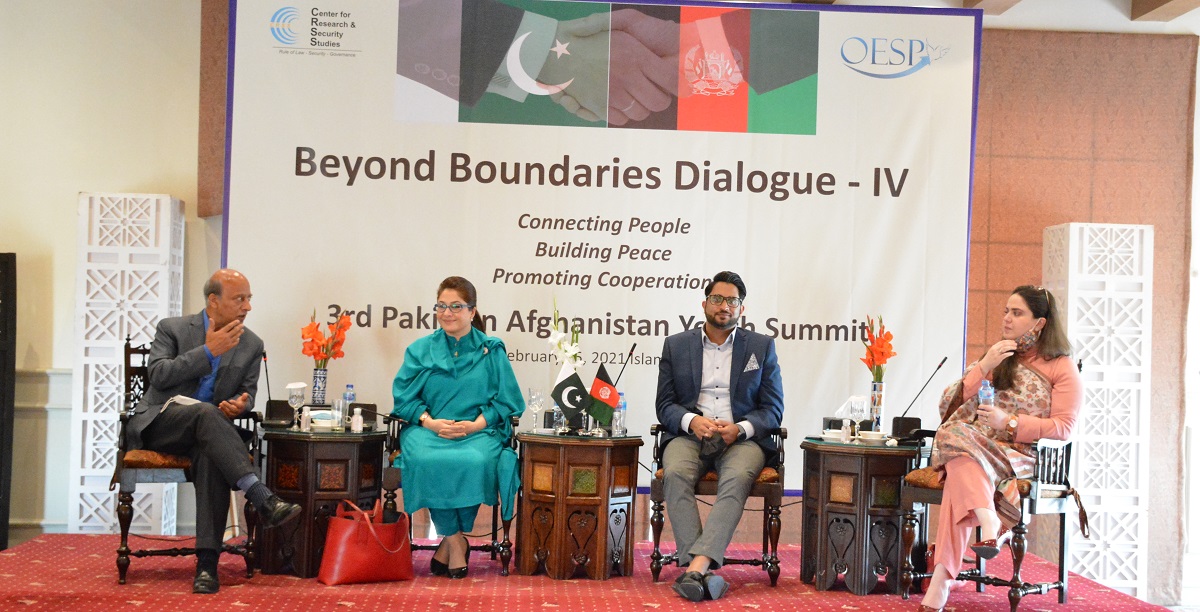
At the end, Mr. Imtiaz Gul thanked all the participants once again and reiterated the importance of such collaborations to strengthen the regional connectivity. He urged the youth participants to build their own capacity vis-à-vis challenges discussed in the summit and raise awareness amongst their societies and neighborhood as the resolution of these issues requires collective efforts.
